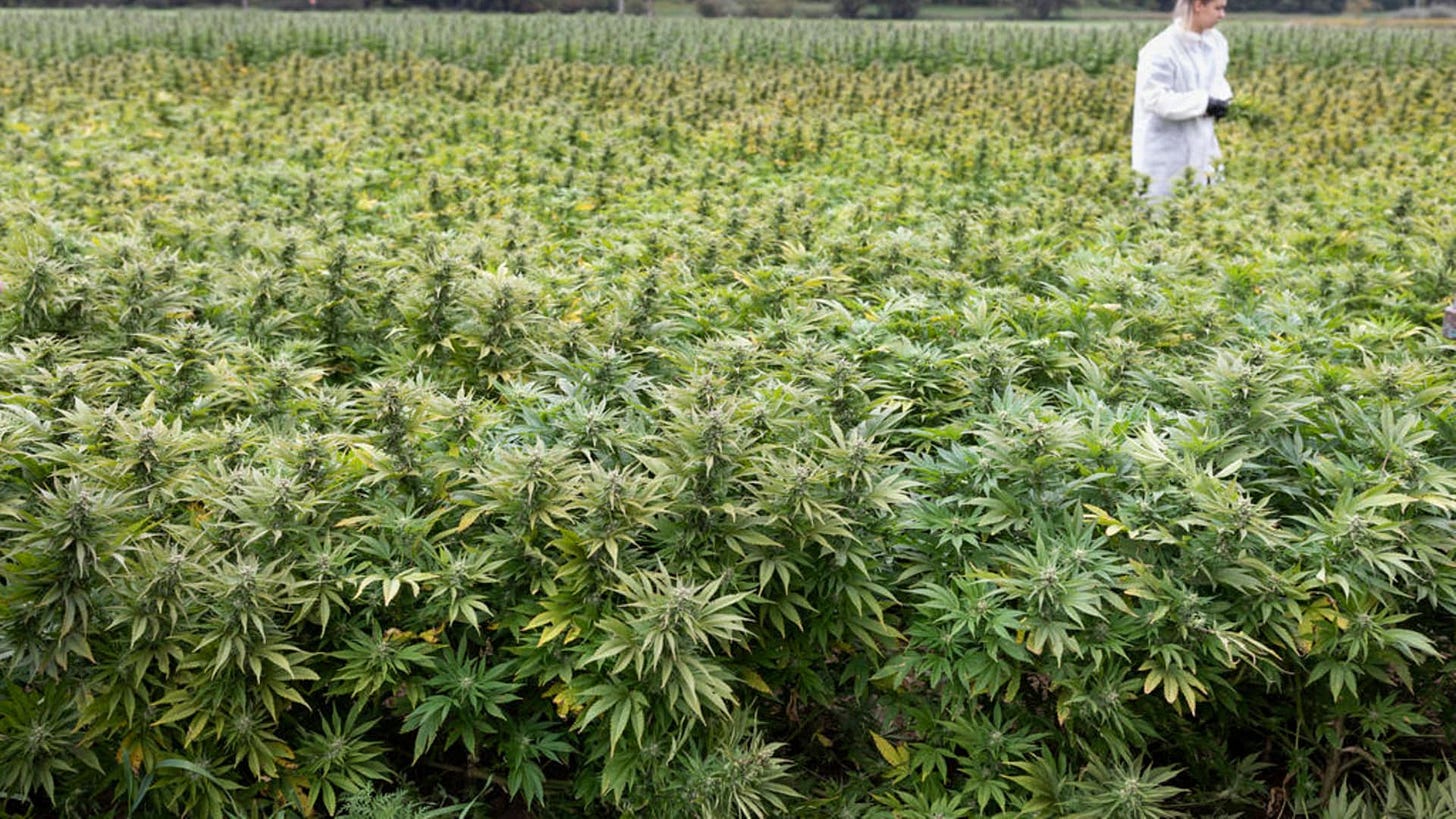The European Cannabis Industry Continues To Gain Momentum
CBD is not a narcotic says EU Court - but what does this actually mean?
Friends,
There are five cannabis markets that I like to pay close attention to.
1. The Canadian Cannabis Market - The first G7 nation in the world to legalize cannabis and the place where I call home.
2. The U.S Cannabis Market - With federal legalization being a question of when not if, this market is on track to become the largest cannabis market in the world.
3. The Latin American Cannabis Market - Given their ideal climate for cultivating cannabis, this market could very well become one of the largest suppliers of cannabinoids in the world.
4. The Asian Cannabis Market - Although their current policies restrict the consumption of cannabis, this hasn’t prevented them from becoming one of the most important players when it comes to supplying CBD.
5. The European Cannabis Market - Having grown up on the Emerald Isle, I pay very close attention to any and all legislative changes happening in this part of the world.
Yesterday, there was some big news that came out of Europe, as the European court of justice dealt a severe blow to efforts by some EU countries to limit the sale of CBD.
Some Context To Set The Stage
As the demand for CBD products continues to increase across Europe, many European nations have made efforts to curb this demand by penalizing those who are supplying CBD products.
As an example, In Ireland in the past two years, a number of “CBD cafes” opened up around the country, and in spite of the products that were being sold at these locations having less than 0.2% THC, many of these locations were raided by the Irish police - which resulted in the store owners having all of their inventory and cash seized.
These types of tales are not limited to the Emerald Isle, and when the same arbitrary enforcement of regulations was brought upon Czech CBD company KannaVape, they decided that would fight their case in court - The European court of justice.
(📸 / SwissHemp)
The Case In Question
The issue in question stemmed from KannaVape deriving their CBD from whole cannabis plant / flower to use in their CBD Vapes, whereas France only permits extraction from cannabis seeds and fiber - not the whole plant / flower.
The European court of justice ruled the law that prompted this legal action against the Czech company was an unnecessary restriction of the free movement of goods in Europe as CBD doesn't pose a threat to human health.
“A decision to prohibit the marketing of CBD, which indeed constitutes the most restrictive obstacle to trade in products lawfully manufactured and marketed in other [EU] Member States, can be adopted only if that risk appears sufficiently" established” - The European court of justice
First, the court set aside EU regulations on hemp which states that cannabis with less than 0.2 % THC (hemp) is permitted in the Common Agricultural Policy (CAP), as CBD "cannot be considered an agricultural product."
However, the court ruled that while European nations can prohibit the free movement of goods of a banned substance like narcotic drugs, this doesn't apply to CBD, as CBD isn't a narcotic drug (which can be broadly defined as a psychoactive compound).
For example, it noted, two key U.N conventions that classify various narcotics don't specifically mention CBD, although they do mention “cannabis extracts."
Banning the sale of CBD products because they're a cannabis extract goes against the “general spirit” of the U.N. conventions, which aims to protect people’s health.
CBD, unlike the psychoactive THC, “does not appear to have any psychotropic effect or any harmful effect on human health,” the court wrote.
A country can inhibit the free movement of goods on the basis of public interest provided that that legislation is appropriate “and does not go beyond what is necessary”, however, such restrictions aren't justified in this case, the court wrote.
As an example, it cited how France has not banned synthetic CBD, which has the EXACT same properties with the only difference being synthetic CBD is not produced using the entire cannabis plant.
The court concluded that France isn't required to prove that CBD is dangerous like narcotic drugs, but the country’s court must look at scientific data to ensure “the real risk to public health" is not "based on purely hypothetical considerations.”
Currently, CBD products in the EU are sold in a legal grey zone that allows cannabis to be sold for agricultural purposes, however, with this ruling, there is now a strong precedent for other European nations not to prevent the sale of CBD products.
👉 If you enjoyed reading this post, feel free to share it with friends!
… For more like this, make sure to sign up here:



